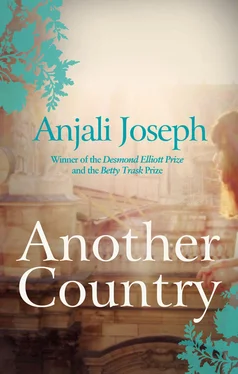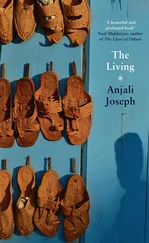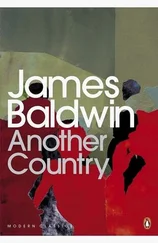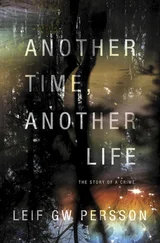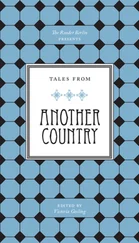‘Sorry, sorry, sorry, sorry!’
Leela must first have looked annoyed, then laughed, for Kate, slightly taller than she, was peering down, a Pierrot, thin, white-faced, with black brows pulled together in comical angst. When Nina, small, rosy-cheeked, blonde, arrived soon after, they discussed where to eat, then walked across the river back towards the Marais. Leela had seen a restaurant near St-Paul. On the way, Nina told them about her collocataire, Isabelle, and about the man she’d met at a concert a week earlier. ‘I told my mother about it, eh, and she said, “I hope you remember you’re not just representing yourself, you’re representing your country.”’ She burst into laughter. ‘I think she was telling me not to be a slapper.’ Leela tried to imagine her own mother, thin, intense, saying, ‘You’re representing your country’.
Once across the river, they walked down an eighteenth-century street and into a pretty, almost twee square. There were restaurants on each side, spreading out awnings towards the trees next to cast-iron lamp posts. Strings of tiny bulbs gave the square a fairy-tale glimmer.
They were hungry, and sat outside under one of the tall, soldier-like heaters.
Nina asked, ‘So where are you living, Kate?’
‘I’m – it’s really funny, I’m living with these two sisters, in the eighteenth, near the Batignolles?’ Kate’s inflection was upward, she widened her eyes and made clown-like faces of ‘do you understand?’ that Leela found endearing. ‘I found it through this friend of mine. Her boyfriend knows these two girls, Amandine and Eloise. Their father left them on their own for a year, and they’re dead young and they needed the money, so they’ve rented out a room.’
‘Where’s he gone?’
Kate wrinkled her nose. ‘It’s mental. He’s gone on a sailing trip round the world with this woman he met or something. He gave the girls ten thousand francs and said have a good year. And Eloise is doing her licence, Amandine is doing her maîtrise. They’re quite hippie-like though, it’s cool. You should come and meet them. I think we’re going to have a fête one of these days.’ She laughed.
‘What’s your place like, Leela?’
Leela began to tell the story. Dusk had fallen, and it was colder. A sharp wind blew in the place, and the leaves bowled about, low flitting shadows. The air became blue and the light powdery.
Returning to the studio, she was amused, as though hearing again remarks they’d made through the evening. She felt the glow of laughter, of the wine, and the absurd, pretty lights in the vines around the bistro entrance. She wasn’t, after all, alone. She opened the small door, let herself in, and turned on the lights, harsh against the night. The single window in the living area glinted; across the courtyard she saw the light had been left on in the corridor toilet. She was tired; instead of undressing and getting into bed, she moved about dreamily, taking out a book but not looking at it, playing a song to which she was at present attached. She thought of smoking, and didn’t. Tiredness always took her this way, and the moment just after society found her as though congratulating or encouraging herself. See? Wasn’t it all right? But this conversation gave way to a tiredness that became more profound, and a sense of the smallness, strangeness, and meanness of the studio, its cunning provisional arrangements, like the platform bed and the folding chair. She didn’t go to bed for some time, for she didn’t look forward to waking up in the silence of this strange cubbyhole, and it was the same silence, at first apparently interrogatory, but in no time again indifferent, unchanging, that met her now.
Chapter 5 Contents Title Page Another Country ANJALI JOSEPH PARIS Chapter 1 Chapter 2 Chapter 3 Chapter 4 Chapter 5 Chapter 6 Chapter 7 Chapter 8 Chapter 9 Chapter 10 LONDON Chapter 11 Chapter 12 Chapter 13 Chapter 14 Chapter 15 Chapter 16 Chapter 17 Chapter 18 BOMBAY Chapter 19 Chapter 20 Chapter 21 Chapter 22 Chapter 23 Chapter 24 Chapter 25 Chapter 26 Chapter 27 Chapter 28 Chapter 29 Chapter 30 Chapter 31 Acknowledgements ALSO BY ANJALI JOSEPH Copyright About the Publisher
Rain: the day was chill and wore sad weeds. Inside the school, damp breathed through the corridors. Leela stood near the notice boards, unpacking her bag. Yes, her students’ exercises were there, a file’s worth of expensive paper, much of it squared and punched so that it could be filed; most people did their brief assignments on the ‘copies’ school children used. Pens, pencils, yes; hair band; tampons (she didn’t take them out); wallet, keys (the heart always fluttered as the fingers probed in the satchel with faux nonchalance, then open desperation); random bits of paper and receipts; Carte Orange; the novel she was reading; unidentified fluff.
She began to put it back, in similar disorder. Now again, inevitably, it would take nearly a minute to locate the Carte Orange at the turnstile; finding her key at the hobbit-like door of the studio would lead to the usual cardiac suspension.
Towards the end of the repacking, a small hand patted her elbow. She heard Nina’s friendly laugh. ‘Did you lose something?’
‘No, I just do this pathologically every time I arrive here or leave.’ Leela scoped the corridor to see if any of her students were about; they were quite far away. ‘I think it expresses my lack of composure about the job we do.’
Nina burst into an ongoing chuckle and held Leela’s arm again. She was sharply dressed, her fair hair piled up, red lipstick matching her cherry-red boots; her stockings were lacy. She smiled at Leela’s examination of her. ‘You’re developing the Parisian bitch-stare, eh.’
Leela laughed. ‘I might be. I couldn’t believe it when I first got here …’
Nina was still clutching her arm, and they began to walk towards the exit. ‘I know, they’re amazing, eh? That up-down when you get on the métro …’
‘Yeah. “Those shoes with that dress?”’
Nina said, ‘I went for a run the other day. I only took my Carte Orange and when I got on the métro at Tuileries these women were just looking at me because I was hot and sweaty and in a tracksuit.’
They were on the street, outside the school’s seedy looking entrance. A man cycled by, grizzled hair close-cropped, charcoal clothes indefinably stylish. The rain mizzled down.
‘What are you doing now?’
‘I don’t know,’ said Leela, hesitant to suggest lunch.
‘I’ve got loads of correcting to do.’
‘Yeah, me too.’
‘Want to come to my place? We could do our corrections together, maybe have something to eat? Nothing fancy, but I’ve got some nice cheese, and we could get some bread.’
‘Okay, I’d love to.’ Smiling, she let the other girl lead her towards the métro.
In the station their conversation became more muted, as though it were a misdemeanour to talk in English. They made their way to the platform, and sat on a bench. Both stared ahead, mesmerised by a pair of enormous posters. One showed a model in an embroidered top and jeans, smiling; the second, the same model in the same pose, but wearing underwear that matched the outfit.
‘Basically everything here is advertised with breasts?’ Nina asked.
‘Yep.’
‘I saw a poster in a shoe shop in Les Halles, with a naked woman and a pair of sneakers.’
‘Look at that.’ Leela pointed at a furniture ad: a photograph of a sofa, over which a voluptuous yet toned naked woman sprawled.
‘Hm.’
With a rushing and a clattering, the small train rattled into place, its lights flashing. Leela and Nina, an elderly lady near them, and a disaffected looking youth in baggy jeans and white hooded sweatshirt all moved towards the doors and reached for the handles.
Читать дальше
